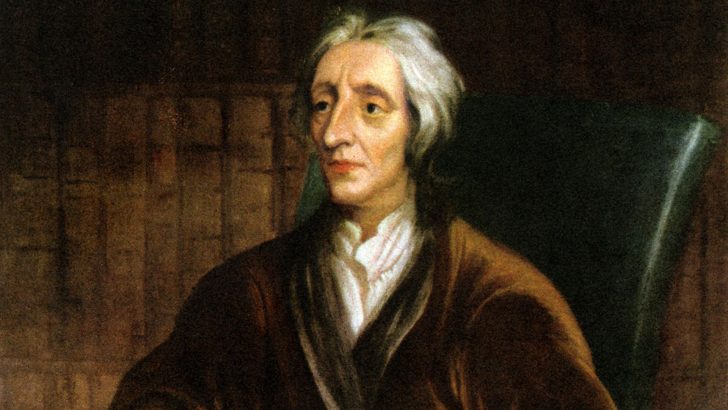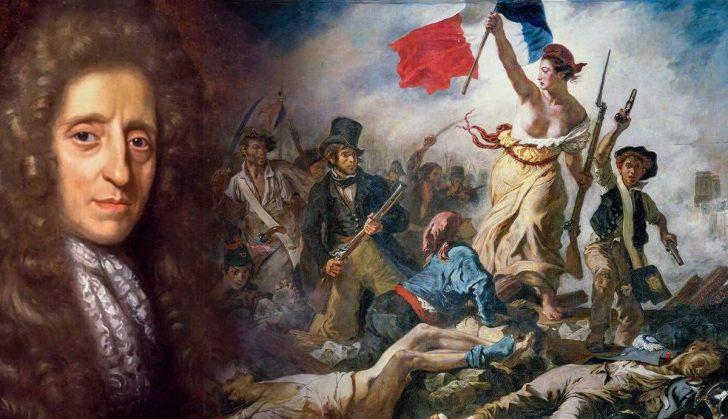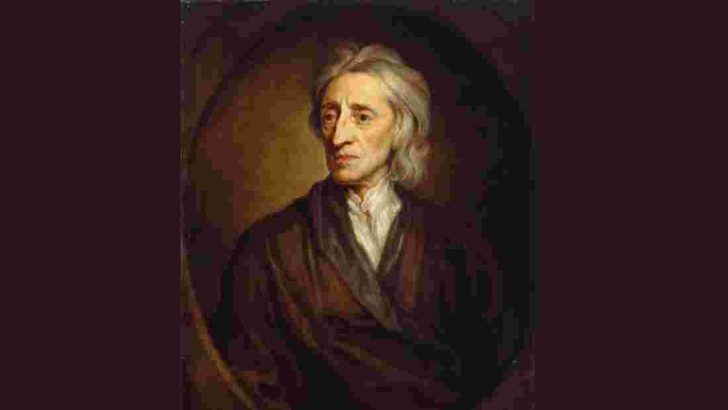John Locke, a towering figure of the 17th century, not only shaped modern philosophy. But he also had a profound impact on political thought around the world. The American Declaration of Independence, a symbol of liberty and democratic ideals, is notably influenced by his theories. But how did John Locke influence the Declaration of Independence?

GTN / Born on August 29, 1632, in Wrington, Somerset, England, John Locke was a thinker ahead of his time.
Educated at the prestigious Westminster School and later at Christ Church, Oxford, Locke was initially more interested in the classical disciplines and the study of medicine. However, his intellectual curiosity soon steered him towards philosophy, particularly in understanding human knowledge and societal structures.
Locke’s life was marked by the political turbulence of the English Civil Wars, a backdrop that significantly shaped his views on government and personal rights. He was a staunch advocate for the Enlightenment ideals of liberty, tolerance, and reason.
His thoughts and writings not only questioned traditional doctrines. But they also proposed a government that derives its authority from the consent of the governed. A revolutionary idea during a time of absolute monarchial rule.
John Locke's Political Theory
Central to Locke’s political theory, as detailed in his seminal work "Two Treatises of Government," is the belief in natural rights. According to Locke, every individual inherently possesses the right to life, liberty, and property. Government, then, is a mutual contract between the rulers and the ruled, designed to protect these rights. Should a government fail to protect these rights or infringe upon them, Locke argued that citizens have a justified right to overthrow it.

The Talks / John Loke’s widely accepted political theory "Two Treatises of Government" had an immense influence on the design of the U.S. government.U.S. government.
This theory of government as a protector of natural rights, rather than a divine or absolute power, was revolutionary. Locke's ideas about governmental power being conditional on the preservation of individual rights laid the groundwork for modern democracy.
How Did John Locke Influence the Declaration of Independence?
Locke’s philosophy resonated with the American colonists, particularly at a time when they felt oppressed under British rule. His notions of natural rights and government by consent directly influenced Thomas Jefferson and other Founding Fathers as they drafted the Declaration of Independence.
Jefferson, in particular, echoed Locke's philosophy when he penned the immortal words that "all men are created equal" with "certain unalienable Rights, that among these are Life, Liberty and the pursuit of Happiness."
This assertion was directly drawn from Locke’s theory that government is morally obliged to serve people, namely by protecting their natural rights. The Declaration further reflected Locke’s views with its emphasis on the right of the people to alter or abolish any government that becomes destructive of these ends.
Locke's Major Works and Their Influence
Aside from the "Two Treatises of Government," Locke’s "An Essay Concerning Human Understanding" is another critical work that influenced a wide array of disciplines, including psychology, education, and governance. In it, Locke challenges the notion of innate ideas and instead argues that knowledge is derived from experience.

CBC / Locke’s letters on toleration advocated for religious freedom and pluralism, arguing that civil government should not have the power to intervene in the religious choices of individuals.
Thus, this emphasis on empirical evidence and individual understanding further underscored his ideas about the importance of personal rights and freedoms.
This advocacy for separation of church and state also deeply influenced American constitutional thought, embedding itself in the First Amendment of the U.S. Constitution.
So, how did John Locke influence the Declaration of Independence? Well, by providing the philosophical foundation that inspired the Founding Fathers to advocate for a fair and just society. A society where government powers are derived from the consent of the governed and are always directed towards the preservation of individual rights and liberties.
